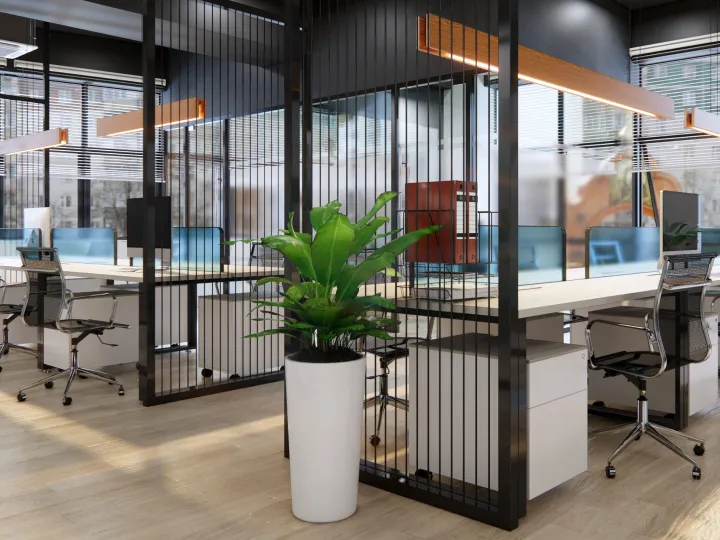Understanding Fit Out Needs
Before choosing a contractor, it’s essential to understand what your office fit-out involves, as the term can range from simple infrastructure upgrades to complete interior transformations. In the UK, fit-outs are typically classified as Cat A or Cat B. Cat A refers to the foundational elements — lighting, flooring, and mechanical systems — and Cat B focuses on customising the space to suit your brand and operational needs.
Knowing the category your project falls into will help in identifying contractors with the right expertise. For instance, a Cat B fit-out demands a partner with strong design sensibilities, familiarity with workplace ergonomics, and the ability to integrate technology seamlessly. Conversely, a Cat A project may lean more heavily on engineering and compliance.
This clarity also supports better budgeting and scheduling. Defining your fit-out scope early is crucial for avoiding costly mistakes, as these projects can involve significant capital investments. The right contractor will align with your goals from the start, whether you're updating a single office floor or moving to a new headquarters.
Credentials that matter
When evaluating potential contractors, credentials are more than just a formality. They are a window into the company's reliability, professionalism, and ability to deliver. Look for firms that are members of recognised industry bodies such as the British Council for Offices (BCO) or the Royal Institution of Chartered Surveyors (RICS). These affiliations often indicate adherence to best practices and ethical standards.
Insurance and accreditations are equally vital. Contractors should carry public liability and employer's liability insurance, and ideally be certified under schemes like ISO 9001 for quality management and ISO 14001 for environmental responsibility. These benchmarks are not just paperwork; they reflect a company's commitment to consistency and sustainability.
It is also worth exploring their track record with similar projects.
A contractor who has successfully delivered fit-outs in your sector will be more attuned to your operational nuances. For example, a firm experienced in refurbishing legal offices will understand the importance of acoustic privacy and secure storage. At the same time, one specialising in tech environments will prioritise agile layouts and robust data infrastructure.
Collaboration and communication
A fit-out project is not just a transaction. It is a partnership that unfolds over weeks or months, often involving multiple stakeholders. That is why communication style and collaborative approach are just as important as technical skill.
The best contractors operate with transparency and responsiveness. They provide clear timelines, flag risks early, and offer solutions rather than excuses. During the tender process, pay attention to how they handle queries and whether they take the time to understand your business. A contractor who listens well and asks insightful questions is more likely to deliver a tailored solution.
Project management capabilities are another key consideration. Look for firms that assign dedicated project managers as your single point of contact. This can speed up decision-making and reduce the risk of miscommunication.
Ultimately, the right partner will feel like an extension of your team. They will respect your internal processes, accommodate your working practices and ensure minimal disruption to your operations.
Design vision and technical know-how
A successful office fit-out balances aesthetics with functionality. It should reflect your brand identity while supporting productivity, well-being, and future growth. This requires a contractor who can marry creative vision with technical rigour.
Design capabilities vary widely across firms. Some offer in-house design teams, while others collaborate with external architects. Either model can work, but it is vital to assess their design portfolio.
Technical expertise is critical. Fit-outs often involve complex integrations, from HVAC upgrades to fire safety compliance so contractors must be fluent in building regulations, health and safety standards, and accessibility requirements. In the UK, this includes familiarity with the Equality Act 2010 and Building Regulations Part M.
Sustainability is another growing priority. Many businesses now seek BREEAM-rated spaces or aim for net-zero carbon footprints. A forward-thinking contractor will guide you through material choices, energy-efficient systems, and waste reduction strategies. They may also help you secure environmental certifications that enhance your corporate reputation.
Support and guarantees
The end of the build phase should not signal the end of the relationship. Post-completion support is a hallmark of a contractor who stands by their work. This includes snagging resolution, maintenance guidance, and warranties on craft and materials. Ask about their handover process. Do they provide detailed documentation, including as-built drawings and equipment manuals? Will they offer training for your facilities team or help you optimise the space once it is in use?
Some contractors also offer aftercare packages, which can be invaluable for businesses with limited internal resources. These might include scheduled inspections, minor repairs, or support with future modifications. It is a sign that the contractor is invested in your long-term satisfaction, not just the immediate outcome. Guarantees and service level agreements (SLAs) provide additional peace of mind. They clarify what is covered, how issues will be addressed, and what recourse you have if expectations are not met.
Choosing the right office fit-out contractor is not a decision to be rushed. The ideal partner will bring more than technical skill; they will offer insight, empathy, and a genuine commitment to your vision. Whether you are creating a collaborative hub, a client-facing showroom, or a quiet zone for focused work, the right contractor will help you realise your goals with confidence and clarity.

